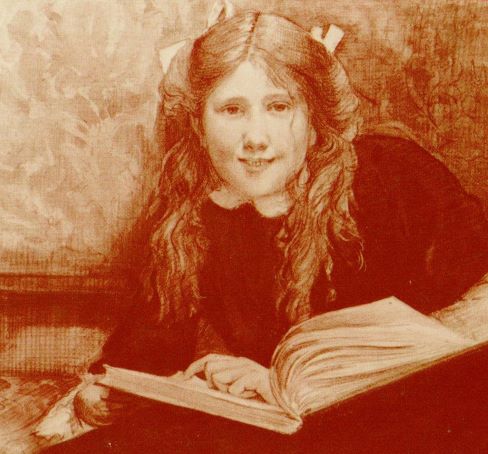The Katharine Briggs Award 2024: Short List

We are pleased to announce the short list for the Katharine Briggs Award 2024
SHORT LIST and Judges’ comments on the short-listed entries
(in alphabetical order by first author/editor surname)
Willem de Blécourt and Mirjam Mencej (eds), Werewolf Legends (Palgrave Macmillan).
This is an engrossing collection of legends concerning werewolves from across Europe, using different methods and approaches, from which a number of tale types and motifs start to accumulate and gather together. These accounts often offer an overview of the development of folklore processes in Europe, in a somewhat novel combination of folkloristics and history.
Cecily Gilligan, Cures of Ireland: A Treasury of Irish Folk Remedies (Irish Academic Press).
This wonderful book is grounded in Gilligan’s own extensive, original, interviewing about contemporary beliefs and practices about curing, and contextualised, with a light touch, by the necessary scholarship. It is another shining example of successfully bringing the study of folklore, based in rigorous proper research, to a wide audience.
François-Marie Luzel, The Midnight Washerwoman and Other Tales of Lower Brittany; ed. & transl. Michael Wilson (Princeton University Press).
This is a great collection of nineteenth-century Breton tales that cannot be found anywhere else. The notes to each tale fill out the local context, and other important details such as the tale type. It is also very accessibly written. A fine example of how to bring folklore scholarship to a potentially wide public without sacrificing scholarly rigour.
Peter Shepheard, Jock Duncan: The Man and his Songs (Rymour Books).
This is a lovely mix: a nice introduction, plenty of Duncan’s own writings on his life and working life on the farms, followed by his versions of the songs and ballads with excellent accompanying notes. It is clear from the book that Jock Duncan is more than worthy of a volume like this.
John Sloan, Andrew Lang: Writer, Folklorist, Democratic Intellect (Oxford University Press).
Lang’s interest in, and impact on, the development of the intertwined fields of Folklore, Mythology and Anthropology is at the heart of this scholarly, yet accessible, volume. A tremendous feat of both forensic scholarship and lucid synthesis, the author achieves the near impossible: contextualising the incredible range of Lang’s interests without losing focus on the life and career of a giant of late Victorian society and culture.
Tabitha Stanmore, Cunning Folk: Life in the Era of Practical Magic (The Bodley Head).
Cunning Folk draws on a wide range of historical sources to trace the evolving role of magical practitioners in England from the medieval period to the early modern era. It is grounded in rigorous scholarship but written with an ease and clarity that makes it accessible to a wide audience.
Erin E. Stiles, The Devil Sat on my Bed: Encounters with the Spirit World in Mormon Utah (Oxford University Press).
A very accomplished monograph, focusing on the experiential nature of religion and constructed from both archival research and fresh ethnographic encounters with present day believers. The author allows us access to the spiritual beliefs of Mormon communities; in so doing opening up wider questions on the nature of spirituality and belief.
Matthew Townend, The Victorians and English Dialect: Philology, Fiction, and Folklore (Oxford University Press).
An excellent study, formed through detailed research and rigorous scholarship. It’s written with clarity and shines through with the author’s affection both for the people inhabiting this history and the dialects and languages they collected and celebrated. It also illustrates the important (and often under-appreciated) roles played by women in debates around philology, folklore and dialect studies in the Victorian period.
Weird Walk, Weird Walk: Wanderings and Wonderings through the British Ritual Year (Watkins Publishing).
It is to be hoped that this will bring a new appreciation of local and calendar folklore to many people. Added to this there are some good walks and great illustrations, mainly by Homer Sykes. It’s part of what needs to be done to introduce people to folklore as something in which they can and should be interested…and it might also persuade more people to put on their walking boots!
The winner will be announced on Tuesday 12 November at Cecil Sharp House, London NW1 7AY, after the Katharine Briggs Lecture, which is hosted jointly this year by The Folklore Society and The English Folk Dance and Song Society.
Our speaker this year is Dr Doc Rowe: ‘Transmission, Transformation and Trends: Historic and Contemporary Approaches to our Cultural Traditions’ and the lecture begins at 18:00.
Following the lecture, The Folklore Society President, Prof. David Hopkin, will read out the judges’ report on the Katharine Briggs Award short list and will announce the winner and present the prize. There will then be a presentation of The Folklore Society’s Coote Lake Medal for folklore research to Prof. Ronald Hutton.
Afterwards, drinks and snacks will be served, there will be music, we will celebrate Doc Rowe’s imminent 80th birthday, and all the books entered for the Katharine Briggs award will be on display for our guests to browse.
Tickets: £6.00 (£4 for Folklore Society and EFDSS members with the Discount Code: just log on to the Members area to find the Discount Code) from: https://www.efdss.org/whats-on/14065-katharine-briggs-2024?